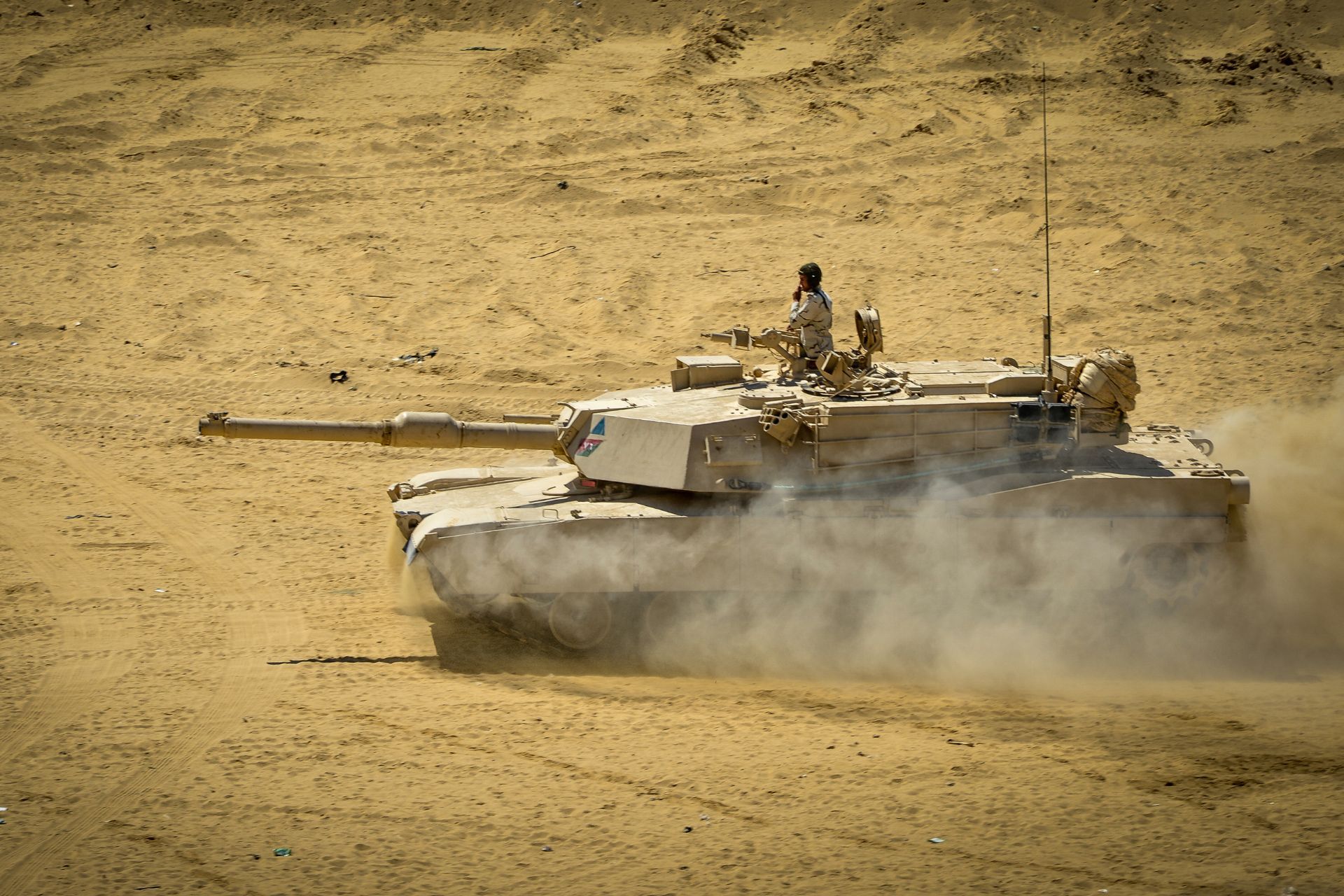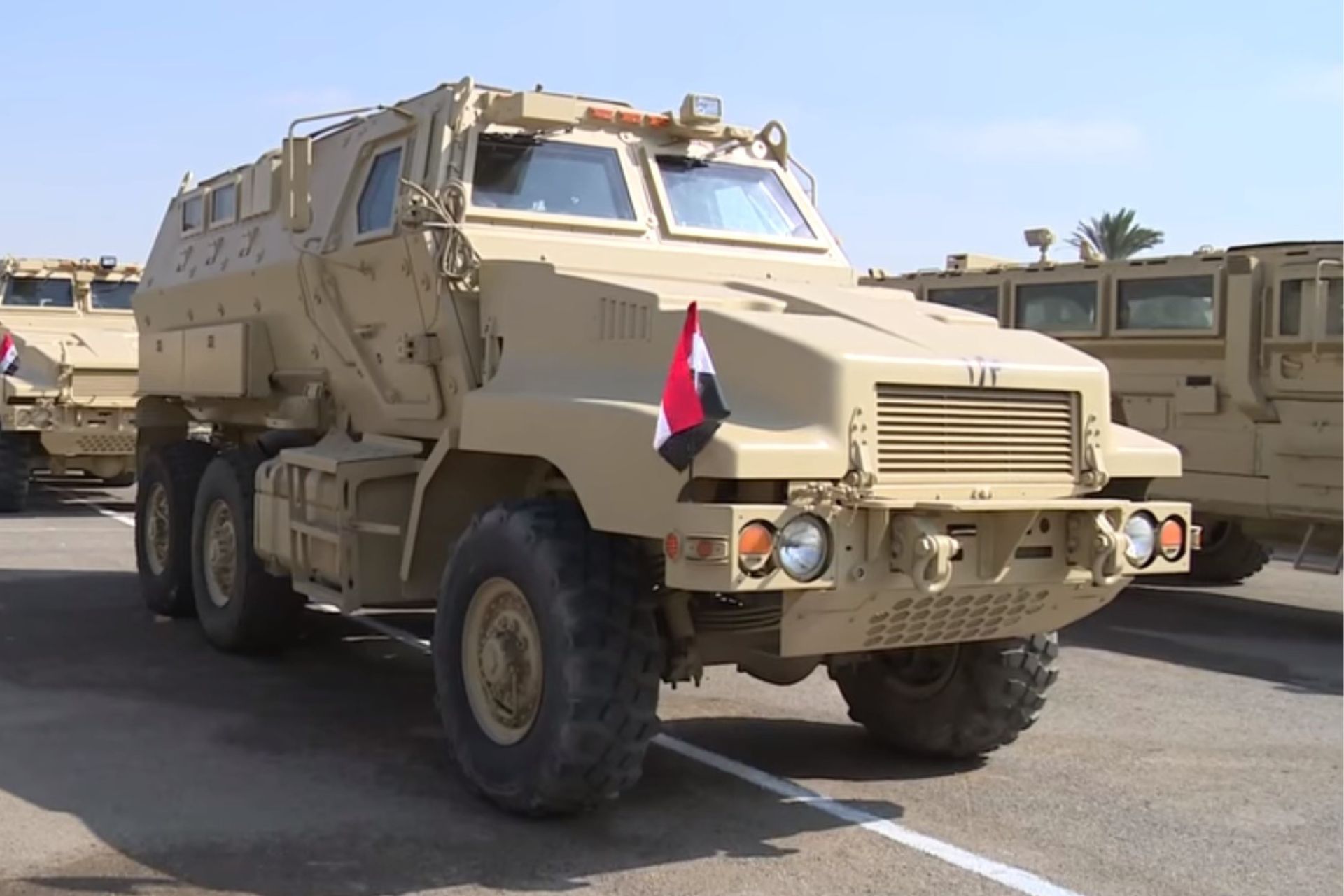Breaking News
US grants Egypt $1.3 Billion in Military Aid Boosting Defense Cooperation.
On September 11, 2024, the Biden administration confirmed that Egypt would receive its full allocation of $1.3 billion in military aid, despite persistent concerns over the country’s human rights record. This marks the first time that the administration has granted this aid without withholding any portion, reflecting the increasing reliance of the U.S. on Egypt’s mediation efforts, particularly in the ongoing conflict between Israel and Hamas in Gaza.
Follow Army Recognition on Google News at this link

An Egyptian M1A1 Abrams tank participated in a field training exercise during Bright Star 2017 at Mohamed Naguib Military Base, alongside more than 200 U.S. service members as part of the bilateral U.S. Central Command exercise held from September 10 to 20, 2017. (Picture source: US DoD)
Of the $1.3 billion aid, $320 million is usually conditioned on Egypt's improvement in human rights, leading to partial withholdings in past years. However, Secretary of State Antony Blinken informed Congress that $225 million of this amount would be released, citing U.S. "national security interests." The U.S. government emphasized Egypt’s key role in regional peace efforts, especially in mediating ceasefire negotiations between Israel and Hamas and managing humanitarian aid to Palestinians in Gaza.
Despite this crucial diplomatic role, the Egyptian government, led by President Abdel Fattah al-Sisi, continues to face accusations of human rights abuses, including torture and arbitrary detentions. Some U.S. lawmakers, such as Senator Chris Murphy, criticized the waiver of human rights conditions, insisting that Egypt remains a repressive state. However, the State Department noted progress, such as the release of political prisoners and proposed reforms on pretrial detention, which led to the release of $95 million in previously withheld military aid.
For many years, the U.S. has played a central role in equipping Egypt’s military, providing advanced systems that enhance the operational readiness of Egypt’s armed forces. This annual military aid includes armored vehicles, combat helicopters, and sophisticated weaponry, thereby strengthening Egypt’s defense capabilities.
Among recent deliveries, armored personnel carriers such as the RG-33 and MaxxPro, delivered in 2016, have provided Egypt with enhanced mobility and protection against mines and improvised explosive devices (IEDs), critical in counterinsurgency operations in the Sinai. These vehicles are particularly suited for counter-insurgency missions, offering essential protection to troops.
The M1A1 Abrams tank, with 125 units delivered, is another key component of Egypt’s military arsenal. Considered one of the most powerful tanks in the world, it is equipped with a 120mm smoothbore gun and advanced composite armor. These tanks are supported by M88 armored recovery vehicles, which ensure that damaged tanks can be retrieved and returned to service, maintaining their operational availability.

The United States delivered a batch of mine-resistant ambush-protected (MRAP) vehicles to the Egyptian military in 2016 (Picture source: Egyptian Army)
In the air domain, Egypt has received F-16C Block 50 fighter jets and AH-64D Apache Longbow helicopters, armed with AGM-114 Hellfire missiles, which are effective against armored vehicles. These aircraft play a crucial role in anti-terrorism operations in the Sinai, where Egypt combats various armed groups. On the naval front, Egypt has strengthened its fleet with Ambassador-IV corvettes and Swift-93 patrol vessels, vital for coastal defense in strategic areas such as the Mediterranean and the Red Sea. These ships, equipped with anti-ship missiles and advanced radar systems, provide crucial maritime protection for Egypt.
In the field of intelligence and reconnaissance, Egypt has received systems such as the SIGINT Beech-190 aircraft and DB-110 reconnaissance pods. These assets provide critical real-time intelligence capabilities, enhancing Egypt’s ability to monitor and respond to threats along its borders.
While the U.S. remains Egypt’s primary military supplier, the country has diversified its sources of armaments, strengthening ties with partners like China. This diversification allows Egypt to reduce its reliance on the U.S. while accessing alternative technologies. For instance, Egypt has acquired Wing Loong II drones from China, similar to the U.S. MQ-9 Reaper, which are used for both reconnaissance and strike missions. This strategy aims to ensure a robust and versatile military supply chain, enabling Egypt to address regional security challenges effectively.
























